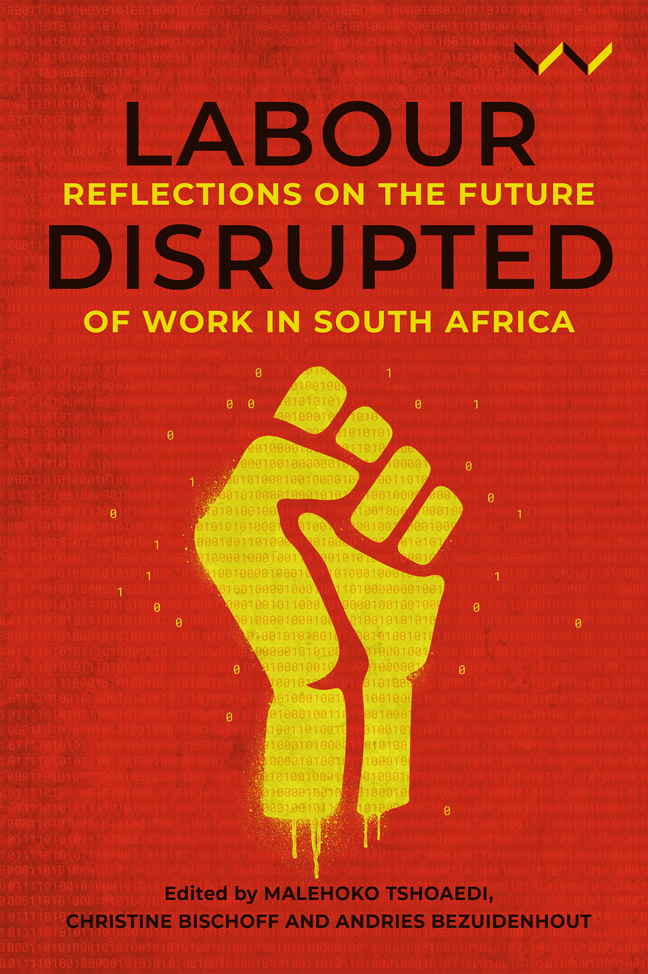Book contents
- Frontmatter
- Contents
- Figures and Tables
- Acknowledgement
- Acronyms
- Introduction: Disruptions and New Directions in South African Labour Studies
- Chapter 1 Fragmented Labour Movement, Fragmented Labour Studies: New Directions for Research and Theory
- PART I Changing Solidarities
- PART II Technology and Work
- PART III New Forms of Organising
- PART IV Labour and Lockdown
- Conclusion: Questions, Answers and New Directions
- Contributors
- Index
Chapter 2 - Patriarchal Collusions and Women's Marginalisation in Mining Unions
Published online by Cambridge University Press: 01 March 2024
- Frontmatter
- Contents
- Figures and Tables
- Acknowledgement
- Acronyms
- Introduction: Disruptions and New Directions in South African Labour Studies
- Chapter 1 Fragmented Labour Movement, Fragmented Labour Studies: New Directions for Research and Theory
- PART I Changing Solidarities
- PART II Technology and Work
- PART III New Forms of Organising
- PART IV Labour and Lockdown
- Conclusion: Questions, Answers and New Directions
- Contributors
- Index
Summary
INTRODUCTION
Labour feminists have long criticised trade unions for embracing and reproducing a culture that valorises androcentric norms and logics, functioning as boys’ clubs with ‘brotherhood’ solidarities that exclude or marginalise women (Colgan and Ledwith 1996; Franzway 2000; 2001; Munro 2001; Ledwith 2012; Acker 2012). Like their global counterparts, South African trade unions and federations, especially those organising in male-dominated workplaces, have also faced similar criticisms (Berger 1992; Orr, Daphne and Horton 1997; Tshoaedi and Hlela 2006). While much has been said about transforming unions and taking seriously women's struggles in workplaces, the recalcitrant masculine culture of unions remains. Women's experiences are still coloured by marginalisation, and they continue to be seen as ‘outsiders inside’ and as invaders.
Using data from participant observation where I worked full shifts underground for almost a year while living with mineworkers in their residences, and interviews conducted between 2008 and 2019 at a platinum mine in South Africa, I outline women's experiences in three mining unions: the United Association of South Africa (Uasa), the Association of Mineworkers and Construction Union (Amcu) and the National Union of Mineworkers (NUM). Being with workers daily allowed me not only to understand the lives of women miners, but the life of mineworkers generally. During my time as a participant research mineworker I also attended meetings, participated in strikes, and attended social and family events. This allowed me to be fully immersed in the miners’ lives. In this chapter, I reflect on their responses to unionisation, their nominal membership in some unions and how they make sense of their marginal and outsider status. I categorise their responses and approaches to unionisation into four groups:
• the women's structure group, which included detached and disgruntled women who were officially members of NUM;
• the Uasa group, which was antagonistic and anti-union;
• the invisible and marginal Amcu group;
• and what I call the loners, who were despondent women disappointed with unions.
I explain what distinguishes them from each other and what they demonstrate about the workings of the ‘patchwork quilt of patriarchies’ and unwritten scripts of exclusion. Belinda Bozzoli (1983, 149) defines the ‘patchwork quilt of patriarchies’ as a ‘system in which forms of patriarchy are sustained, modified and even entrenched in a variety of ways depending on the internal character of the system’.
- Type
- Chapter
- Information
- Labour DisruptedReflections on the Future of Work in South Africa, pp. 51 - 72Publisher: Wits University PressPrint publication year: 2023



